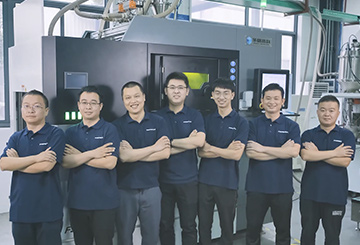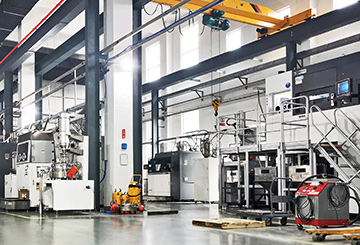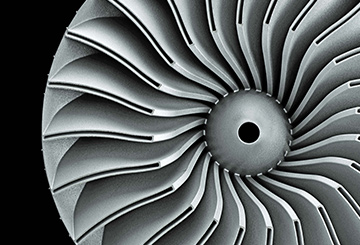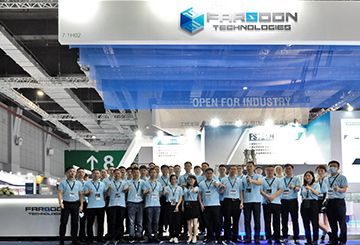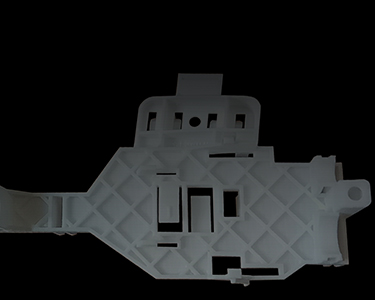In the automotive industry, additive manufacturing has long been seen as an alternative to traditional manufacturing. Functional parts production has remained a sought-after goal, however it’s also a great challenge for many large automotive OEMs. Functional parts have stringent requirements for quality, speed and cost of manufacturing, as well as designs which distinguish themselves from their competitors. In an industry where design-to-market time, performance and profitability are key for mass production, additive manufacturing is playing an increasingly large role.
FAW-Volkswagen Automobile Co., Ltd., is a joint venture by FAW Group, Volkswagen and Audi that was founded in 1991 in Changchun, Jilin province. FAW-Volkswagen has established itself as a strong leader in the Chinese auto market thanks to a series of iconic models including the first passenger car to be mass produced in China. By the end of 2019, FAW-Volkswagen achieved annual sales of 2.34 million cars and a cumulative production of 19 million vehicles in total.
FAW-Volkswagen first foray into additive was adopting FDM and SLA technologies for new model prototyping and development. However, with increasing product lines and engineering demands, FAW-Volkswagen started to look for other plastic additive technologies for manufacture high-performance functional parts. Farsoon’s HT403P was able to provide the FAW-Volkswagen engineering team an industrial plastic laser sintering system to empower their innovation as well as improved manufacturing quality and speed.
“With the increasing benefits and expanded applications brought by Farsoon Laser Sintering Technology, we are now intensively using the HT403P in all new model development process, including design prototyping and functional parts production. Currently we prototype over 5000 parts every year with the HT403P.” explained Wu Hongtao, Senior R&D engineer of FAW-Volkswagen.
Improved cost-performance for functional prototyping
Functional components are crucial in the automotive design process. The development and validation process including designing each functional part to test and control for specific elements. The data collected from every functional test will then be further analyzed and processed for variables. In order to meet functional performance and environmental requirements, all plastic components have to be made with suitable manufacturing tools and materials.
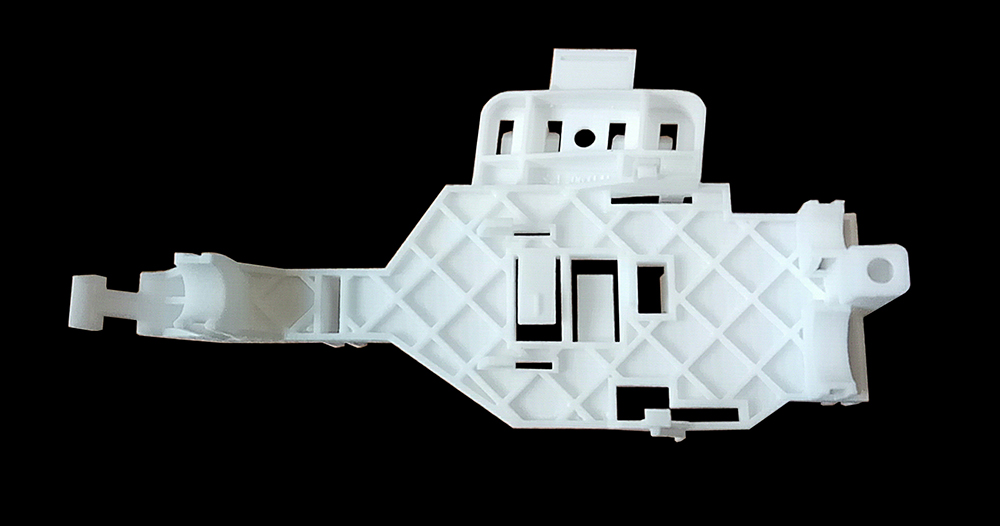
Figure 1: FAW-Volkswagen bumper guide brackets model. Image courtesy: FAW-Volkswagen
Take for example the brackets for bumper guides (figure 1). This part required a small batch of 30 pieces for functional testing, this quantity is challenging using silicone molds due to the complicated process of manufacturing, time consumed, and high cost of tool-making and manual labor. The multiple steps of silicon mold manufacturing can result in poor parts integrity and low strength, resulting in poor performance during load and impact tests. Compared to traditional silicon molding, the plastic laser sintering process achieved design to physical part time of only 14 hours compared to 78 hours, and a total of 72% production cost saving, of which the labor cost decreased from 1000USD to only 60USD (Figure 2).
Compared with traditional silicon molding process, the HT403P plastic laser sintered parts show optimal strength, good resistance performance under temperature, humidity and chemical corrosion conditions. During the loading test it also shows excellent impact thanks to the improved part integrity.

Figure 2: Production time & cost comparison by silicon molding and Farsoon additive manufacturing
“Besides the significant time-saving and reduced cost, we have seen a very high yield of 99% and high pass rate from Farsoon additive manufactured functional parts,” explained Wu Hongtao, Senior R&D engineer of FAW-Volkswagen, “These combined advantages make the HT403P a tool that is very well suited for functional prototyping and an favorable alternative for traditional manufacturing.”
Advanced manufacturing tool and alternative supply chain
The automotive air-duct is a key component in providing controlled air flow into the occupant compartment of the vehicle. The main challenge for production is its oversized complex hollow structure. Traditionally this structure can only be produced by blow molding; with the high size-precision which can only be operated by highly-skilled suppliers. This not only increases the lead time and quality-control of the part, but also extremely expensive for small-batch prototyping. For a small run of 10 pieces, the blow mold production process can take up to 3 months, with costs as high as 36,000 USD. Moreover, with the frequent iterations during the design development, and the increasing needs of limited-edition cars as well as customization, the engineering team of FAW-Volkswagen looked for a more advanced manufacturing tool with better cost-efficiency and speed. (Figure 3).
The engineers had decided to use plastic laser sintering technology as a brand-new small-batch manufacturing solution. The laser sintering process helped streamline the design – manufacturing process for complex air-duct structure without requiring other manufacturing tools and simplified the supply chain management. This greatly accelerated the design iteration process and reduced production costs. This is especially valuable for limited edition model development to prevent waste and inventory associated with Tool-making.
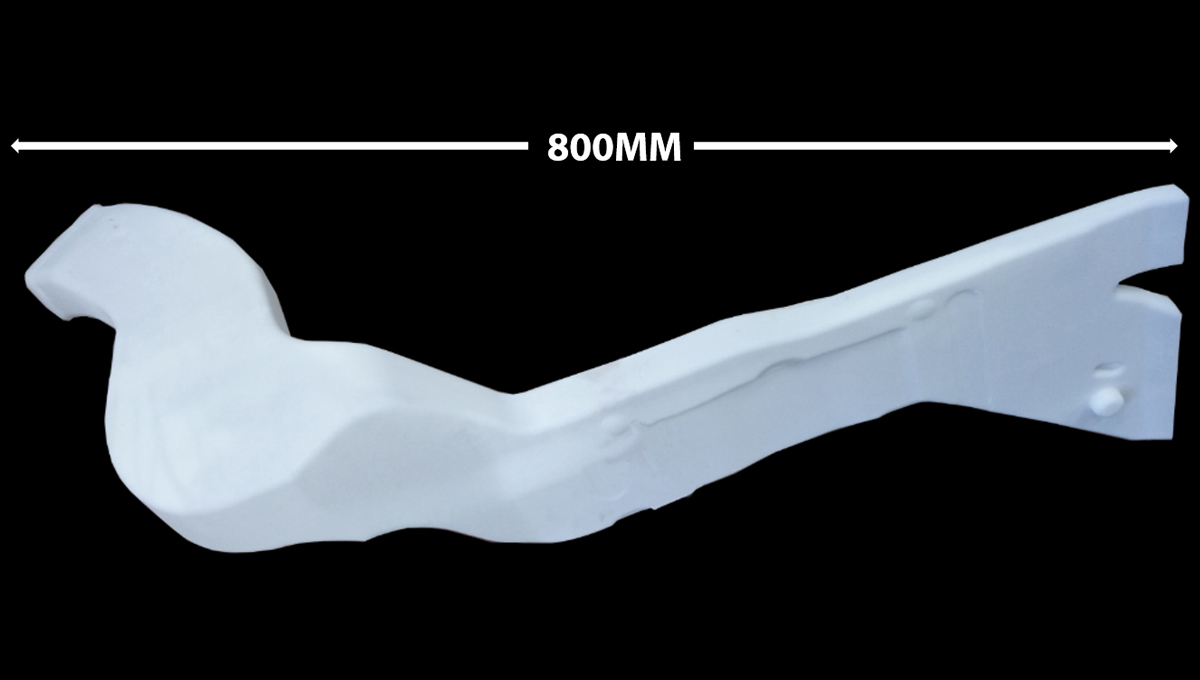
Figure 3: FAW Volkswagen Air-Duct functional prototyping part by Farsoon additive technology. Image courtesy: FAW-Volkswagen
“for air-duct development, no other manufacturing tools is more suited than Farsoon’s laser sintering technology. Compared to traditional blow molding and other 3D printing technologies, Farsoon laser sintering offers faster design-manufacturing cycle and improved cost – performance, this is invaluable to us when it comes to a tight R&D time frame with frequent iteration cycles. We appreciate very much the stability and quality of Farsoon HT403P as a true manufacturing tool that we can count on for our future technology road map.” Said Wu Hongtao, Senior R&D Engineer, FAW-Volkswagen.
About Farsoon Technology:
Farsoon Technologies, founded in 2009 by Dr. Xu Xiaoshu, one of the true pioneers of laser sintering technology with more than 20 years’ experience in the industry, now is a leading machine supplier of industrial Metal Laser Melting and Plastic Laser Sintering systems. Farsoon has developed a team of world-class experts with competencies in electrical/mechanical engineering, laser, scanning and optics, thermal controls, as well as material development and applications engineering. With clear vision “Open for Industry”, Farsoon is committed to supporting the industrial production with open systems, materials, parameters and applications.
About FAW-Volkswagen:
FAW-Volkswagen Automobile Co., Ltd. was established on February 6, 1991. It is invested by FAW Group, Volkswagen, Audi and Volkswagen (China). After nearly 30 years of technology innovation, FAW-Volkswagen has established over 20 product lines under three major brands of Audi, Volkswagen and Jetta. Its extended production capacity and factory layout covering Changchun (Northeast China), Chengdu (Southwest China), Foshan (South China), Qingdao (East China), and Tianjin (Northern China). As a strong leader in Chinese passenger vehicle market, by end of 2019, FAW-Volkswagen achieved annual sales of 2.34 million cars and accumulative production of 19 million vehicles in total.
DOWNLOAD SUCCESS STORY

